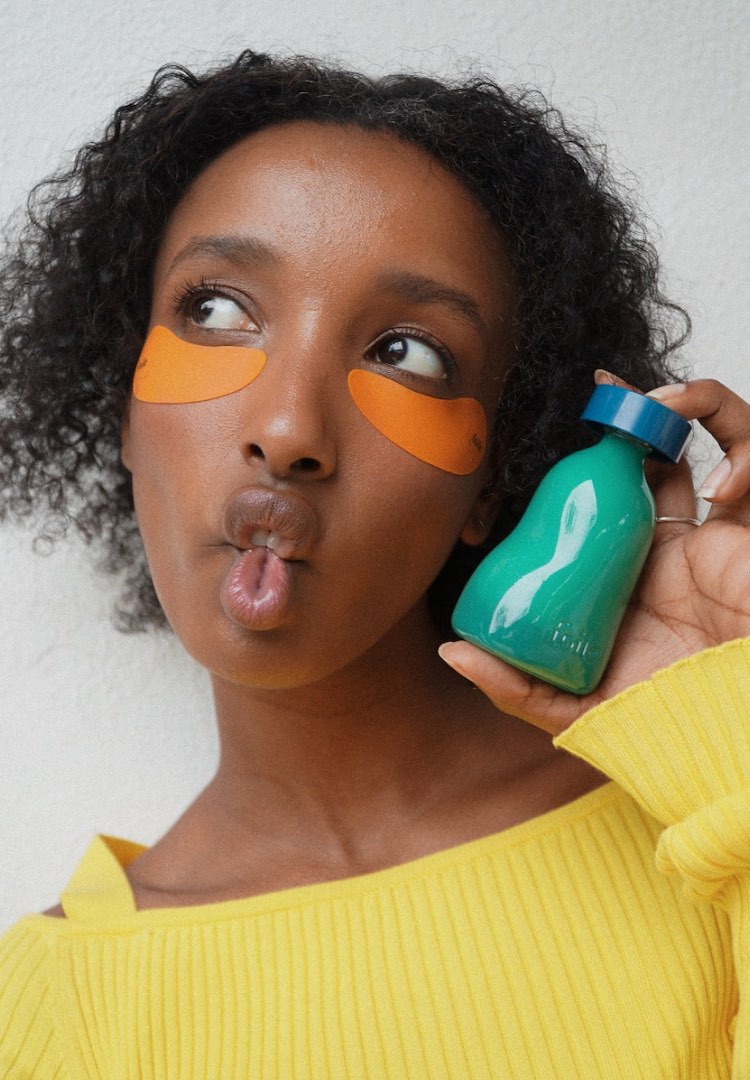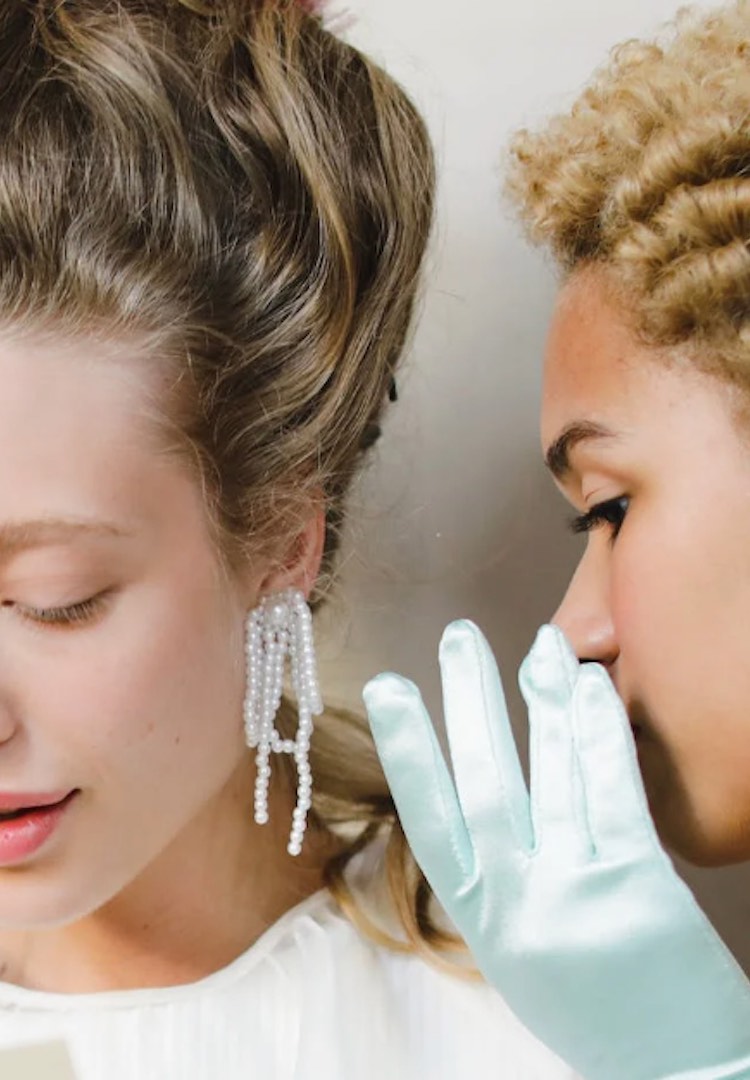How to start dirty talking in the bedroom, according to a sexologist
WORDS BY HANNAH COLE
Taking baby steps to find your erotic language.
Christina Aguilera may have given ’90s kids their first foray into the realm of ‘Dirrty’, but it doesn’t mean we’re any good (read: confident) at relaying those words in the bedroom. As Certified Somatic Sexologist and Sex Educator Alice Child explains, “Talking about sex, generally, is really hard”.
Looking for more thought-provoking reads? Try our Life section.
Although the sex positivity movement has made leaps and bounds since the ’90s, we still live in a relatively conservative society. There’s an invisible ‘cone of silence’ that holds us back. So it’s really not surprising that some of us still haven’t found our voice in the bedroom. We simply don’t have the language. To help, Alice Child shares her insights into implementing dirty talk in the bedroom below.
But does it have to be ‘dirty’?
According to Alice, dirty talk is any communication during sexual pleasure that enhances the moment. It helps you stay in the zone, enhances the chemistry and makes it sexy, helping you build arousal, desire and connection. It can be vocal (words, moans and other noises) or written, like sexting.
And it doesn’t have to fall into the typical ‘dirty’ bracket, either. “People who struggle with it… find it quite intimidating because it’s called dirty talk,” she says. “It implies that you have to be hypersexual, and it has to be really explicit and really dirty and really naughty. For a lot of people, it doesn’t feel like them.” Moving past the ‘dirty’ element will help you break down the first barrier. If you’d prefer, use a different descriptor like ‘intimate’, ‘erotic’ or ‘sexy’.
Baby steps
As a starting point, Alice emphasises the importance of finding your own words and building your language. It’s about practising before you enter the bedroom. Writing your thoughts on paper is “an easier place to start to find your own language and find what feels authentic to you.”
Consider prompts like: what words do you use to describe your genitals? What do you love or hate being called during sex? What do you look forward to in sex most? Answer rapid-fire questions to determine the words that turn you on (and the ones that give you the ick). Think about your tone of voice too. Are you sweet and innocent, or wildly powerful and sultry à la Samantha Jones? Your delivery, particularly if you’re nervous, can go a long way in building confidence.
Start slowly and be curious. Outside the bedroom, an erotic text during the day might be the written key to building anticipation, arousal and connection (and, as Alice notes, it can be “very, very hot”). For example, ‘I’m so excited to see you tonight. I’ve been thinking about you all day.’ Body writing is a fun take on the traditional sext – writing something on your body, taking a photo and sending it to your partner. A little bit spicy and as dirty as you desire, like ‘Kiss me here’.
When you’re ready, Alice suggests “You might start with lighter language”, which isn’t explicitly sexual. For example saying phrases like, “It feels amazing when you do that” or “You look so hot tonight”. Compliments and simple observations (kind of like narrating the scene, but in a far sexier way) help you find your groove and open the verbal floodgates.
It’s also a safe way to explore your partner’s language before you progress into deeper territory. As Alice says, “Everyone [knows] more about their body than you do”. Don’t assume what people like to call certain parts of their body – a mislabel “can be very dysphoric and disempowering”. Mirror the words they use to describe themselves or simply ask questions.
Level up
Next, graduate to communicating your needs like ‘slower’, ‘faster’, ‘hold me here’, ‘more’ or ‘tease me’. Alternatively, use it as a way to get consent. Try asking questions like, “Do you like it when I do this to you?” or “May I kiss you?”. It helps to build intensity while ensuring your partner feels comfortable.
And don’t forget the non-verbal sounds! “If you’re really silent during sex and you even find moaning and groaning difficult, then start there,” Alice recommends. “It’s still an expression of your arousal that helps you stay in the moment and turns on your partner… [it] allows you to surrender to the moment.” In a nutshell, “Get really used to your sex sounds”.
As with everything, practice makes perfect. But it’s meant to be fun, playful and exciting. Don’t make it clinical or overly prescriptive. Be prepared to laugh! And if all else fails, ask yourself, ‘What would Christina Aguilera say?’ Something dirty, I’m sure.
For more sex advice, follow Alice on Instagram here.










